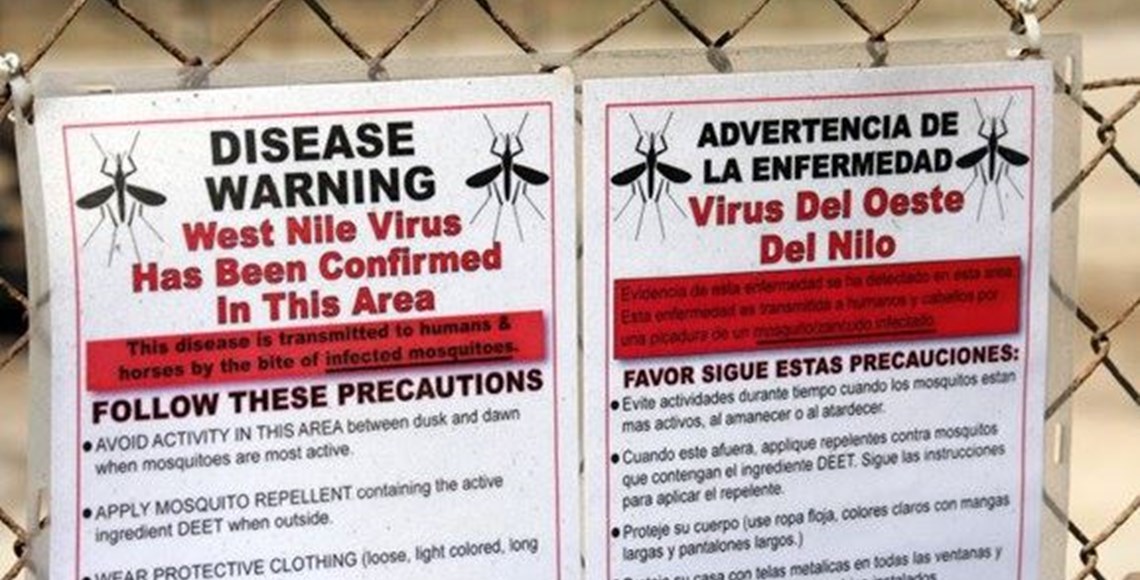What You Need to Know About Symptoms, Risks, and Prevention

First Positive West Nile Mosquito Pool Found in Philadelphia—Here’s Why Health Officials Are Concerned
Philadelphia health officials have issued a West Nile virus warning after detecting the first positive mosquito pool of the season near Pennypack Park in Northeast Philadelphia. While no human infections have been reported yet, authorities caution that more mosquito pools may soon test positive, increasing the risk across the city.
According to the Philadelphia Department of Public Health, this is a familiar seasonal pattern — once West Nile appears in mosquitoes, there is a higher chance of it spreading across the region and eventually impacting humans.
What Is West Nile Virus?
West Nile Virus (WNV) is a mosquito-borne illness that belongs to the flavivirus family, which also includes viruses like St. Louis encephalitis and Powassan. It is primarily transmitted through the bite of infected Culex mosquitoes and is now considered endemic in many U.S. states, including Pennsylvania.
Key Facts About the Virus:
-
Transmitted by: Culex mosquitoes
-
Common hosting areas: Parks, recreational trails, and standing water areas
-
First identified in the U.S.: 1999
Symptoms of West Nile Virus: From Mild to Severe
Most people infected with WNV do not develop any symptoms. However, in those who do, the signs can range from minor to life-threatening.
Mild Symptoms (about 1 in 5 people):
-
Fever
-
Headache
-
Muscle aches
-
Joint pain
-
Body rash
-
Fatigue
Severe Symptoms (about 1 in 150 people):
-
Encephalitis (brain inflammation)
-
Meningitis (inflammation of the lining of the brain and spinal cord)
-
Paralysis, tremors, or seizures
-
Coma in extreme cases
High-Risk Groups:
-
Adults over 60
-
People with weakened immune systems
-
Individuals with chronic diseases
How Is West Nile Virus Treated?
There is currently no vaccine or targeted antiviral treatment for WNV. In most mild cases, the symptoms can be managed with:
-
Adequate rest
-
Hydration
-
Over-the-counter painkillers or fever reducers like acetaminophen and ibuprofen
For severe neurological infections, hospitalization may be necessary, involving IV fluids, respiratory support, and close monitoring.
Where Else Has the Virus Been Found?
Outside of Philadelphia, three additional positive mosquito pools have been reported in Albany County, Wyoming, along with two birds testing positive for WNV. Local mosquito control teams have tested over 50 pooled Culex mosquito samples.
Authorities in affected regions including Wyoming and Pennsylvania are ramping up fogging operations and larval control treatments in parks, golf courses, and trails.
How Can You Protect Yourself from West Nile Virus?
Tips for Prevention:
-
Avoid dusk and dawn outdoor activities, when mosquito activity is at its peak
-
Wear long sleeves and pants, especially near standing water or wooded areas
-
Use mosquito repellents with DEET or picaridin
-
Eliminate standing water around your home (flower pots, bird baths, gutters)
-
Install window and door screens to keep mosquitoes out
Important Health Guidance:
-
Anyone who is diagnosed with WNV is advised not to donate blood or organs for 120 days post-diagnosis
Why This Matters in 2024
The possibility of more confirmed cases in coming weeks is high. According to Gayle Mendoza, Deputy Director of Communications at the Philadelphia Department of Public Health:
“Once we detect the first infected mosquitoes, we usually observe a spread across the city. That raises the potential risk of human cases for the rest of the season.”
With climate changes affecting mosquito breeding patterns and extending mosquito seasons, health authorities emphasize community awareness and early precautions.
FAQs About West Nile Virus
Q1: What is West Nile virus?
It’s a mosquito-borne flavivirus commonly found in North America, often transmitted by Culex mosquitoes. It may range from asymptomatic to neurologically serious.
Q2: Where was it detected in Philadelphia?
The virus was first detected this season in mosquitoes near Pennypack Park, Northeast Philadelphia.
Q3: Have any humans been infected so far?
No human cases have been confirmed in Philadelphia as of now.
Q4: What are early warning signs of infection?
Look for fever, headaches, body aches, fatigue, and, in more serious cases, confusion or muscle weakness.
Q5: Can it be treated?
There’s no specific cure, but symptoms are manageable in mild cases. Severe cases may require hospital care.